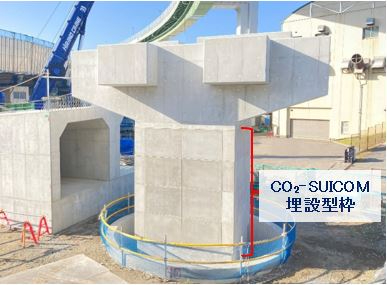J-STORIES ー 結合水耕栽培與淡水魚養殖的「魚菜共生農法(Aquaponics)」正逐步推廣,目標是在實現永續農業的同時,促進身障者與高齡者的就業。農業與福祉結合的「農福連結」是日本農林水產省所推動的計畫,旨在擴大社會參與。相比於傳統農業,水循環共生農法的工作環境更為友善,因此被視為適合身障者與高齡者就業的產業,備受期待。
魚菜共生農法(Aquaponics)不使用土壤,因此可在室內或市中心等狹小土地內導入。與傳統農業相比,其用水量與肥料需求較少,對環境的負擔更低。此外,不使用農藥與化學肥料,作物更具安全性。由於生產管理較容易系統化,身障者與高齡者也能較為輕鬆地參與其中,提升就業機會。
魚菜共生農法(Aquaponics)正逐步擴展至都市農業與家庭菜園領域。根據調查公司Report Ocean的數據,全球水循環共生農法市場預計在 2026 年將達到10億1900萬美元。

以「魚菜共生農法(Aquaponics)讓地球與人們更幸福(HAPPY)」為願景的Acuponey(位於神奈川縣橫濱市),是日本首家專門從事水循環共生農法事業的企業。該公司提供農場規劃與單元式系統等解決方案,並已在全國各地的身障者支援設施導入該系統,推動農業與福祉結合(農福連結)的發展,累積了豐富的實績。
Acuponey 協力的企業之一,「AGRIKO FARM」於今年4月在東京都世田谷區「OGAWA COFFEE LABORATORY 櫻新町」的屋頂開園,作為水循環共生農法(Aquaponics)農場,積極推動農業與福祉結合(農福連結)。該農場由AGRIKO(總部位於東京都世田谷區)經營,其代表董事為演員小林涼子。

小林女士認為,為了農業的未來,必須打造一個讓身障者與高齡者等所有人都能無障礙(Borderless)工作的環境,因此創立了 AGRIKO,並獲得了農林水產省推動的「農福連結技術支援者」認證。
在「AGRIKO FARM 櫻新町」,隨時舉辦針對有意從事農業的身障者的體驗活動,並進行企業媒合。這項計畫旨在向有義務履行身障者雇用政策的企業推薦適合農業工作的求職者,同時提供農場的一部分空間供企業使用,以支援雇用過程。在接受J-Stories採訪時,小林女士表示:「為了讓大家能夠長期穩定工作,我們會仔細評估每個人的適性,謹慎進行媒合。我也希望企業能透過這一機制積極推動身障者雇用。」

農場內養殖本莫羅魚(ホンモロコ)與泉鯛(イズミダイ)等魚類,同時種植香草等蔬菜,並作為午餐套餐的一部分,在一樓的咖啡廳供應。小林女士表示:「這不僅是自產自銷,更進一步可稱為『大樓產大樓銷』。我們能夠根據主廚的需求,以少品種多品目方式進行種植與養殖,避免浪費,這也是我們的一大優勢。」
撰稿:嵯峨崎文香 編輯:北松克朗
封面照片:Simol1407 / Envato
關於本篇報導的查詢,請聯繫:jstories@pacificbridge.jp
***
***
本篇報導的英文版請點此查看。




![[Tokyo Updates]利用昆蟲的生物科技,將廢棄物轉化為資源](https://storage.googleapis.com/jstories-cms.appspot.com/images/1752057790117c2e348a997642a5294646228eec405cdd17ad1e2_smallthumbnail.jpg)
_bigthumbnail.jpeg)





![[PODCAST] 外国人創業者が変える日本のスタートアップの形 (Part 7)](https://storage.googleapis.com/jstories-cms.appspot.com/images/1763538829673unnamed_bigthumbnail.jpg)
![[PODCAST] 外国人創業者が変える日本のスタートアップの形 (Part 6)](https://storage.googleapis.com/jstories-cms.appspot.com/images/1763000777388unnamed_bigthumbnail.jpg)







![[PODCAST] 如何打造成功的新創企業社群(第2集)](https://storage.googleapis.com/jstories-cms.appspot.com/images/1748493203370business-man-holding-light-bulb-social-network-2024-10-31-22-37-36-utc_smallthumbnail.jpg)


